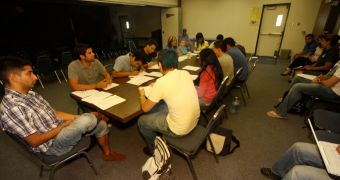A group of investigators from the University of Michigan, in the United States, has recently published the conclusions of a new report, which depicts shifts in empathy among American students. According to the work, it would appear that young adults today are less likely to elicit such feelings in others with the same ease that their parents did in their own peers, two to three decades ago. In a measure test of empathy, today's students scored on average 40 percent lower than previous generations did.
The work was conducted between 1979 and 2009, and included a number of about 14,000 college students in the US. It was basically a review of existing studies on the issue, and it looked at the conclusion of about 72 research papers. “We found the biggest drop in empathy after the year 2000,” UM Institute for Social Research expert Sara Konrath explains. The team at the Institute presented its findings at this week's annual meeting of the Association for Psychological Science, held in Boston, LiveScience reports.
“Many people see the current group of college students – sometimes called 'Generation Me' – as one of the most self-centered, narcissistic, competitive, confident and individualistic in recent history,” Konrath adds. He also holds an appointment at the University of Rochester Department of Psychiatry. “It's not surprising that this growing emphasis on the self is accompanied by a corresponding devaluation of others,” Edward O'Brien, who is a college graduate student working under the scientist's supervision, adds.
According to the investigation, students today are very unlikely to agree with statements such as, “I often have tender, concerned feelings for people less fortunate than me,” or, “I sometimes try to understand my friends better by imagining how things look from their perspective.” These are widely considered to be markers of empathy, and they have been found to be largely lacking in young American adults today. “Compared to 30 years ago, the average American now is exposed to three times as much nonwork-related information. In terms of media content, this generation of college students grew up with video games, and a growing body of research, including work done by my colleagues at Michigan, is establishing that exposure to violent media numbs people to the pain of others,” the team leader adds.
"The ease of having 'friends' online might make people more likely to just tune out when they don't feel like responding to others' problems, a behavior that could carry over offline. College students today may be so busy worrying about themselves and their own issues that they don't have time to spend empathizing with others, or at least perceive such time to be limited,” O'Brien concludes.

 14 DAY TRIAL //
14 DAY TRIAL //